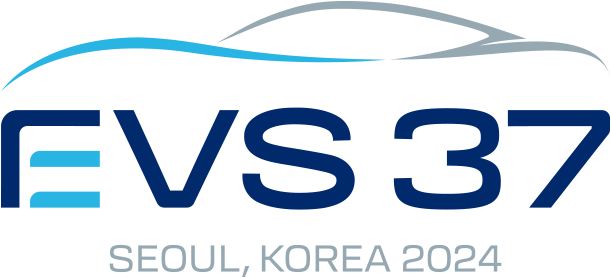

Electric Waves to Future Mobility


Plenary Session 1 April 24(Wed), 11:00-12:00
Electrification of Mobility: Challenges and Roadmap towards Carbon Neutrality


Plenary Session 1 April 24(Wed), 11:00-12:00
Delivering the Future of Mobility
Plenary Session 2 April 25(Thu), 13:50-14:30
The Great ZEV Implementation – Zeroing Out Transportation Emissions in California


Plenary Session 2 April 25(Thu), 13:50-14:30
The New Journey of Electric Vehicle Revolution
EV Tech Summit 1 (EV Safety for Thermal Runaway)
April 24(Wed), 16:10-17:10 Auditorium
Understanding EV Li-ion battery thermal runaway and mitigation strategies
We will introduce fundamentals, chemistries, and cell designs of li-ion batteries (LIBs) for electric vehicles (EVs). We will discuss fundamental causes of safety issues leading to thermal runaway and fires in LIBs. We will explore abusive behavior of cells and packs to various instigators through characterization, testing, and modeling/simulations. We will review approaches to mitigate or reduce safety risks and detect impending failures in LIBs and discuss recent progress in designing safer LIB cells, modules, and packs for EV.
Dr. Ahmad Pesaran
NREL

Dr. Taeyoung Han
Former GM Senior Technical Fellow

Prof. Ki Jae Kim
Sungkyunkwan Univ.

Prof. Sang-Young Lee
Yonsei Univ.

EV Tech Summit 2 (Future Mobility for Software Defined Vehicle)
April 25(Thur), 14:40-15:40 Auditorium
Open Standards: A path to a sustainable industry in a software defined world
The expansion of connected, automated, share, and electric (CASE) vehicles has opened the automotive industry to the potential of activating vehicle data to create new product experiences and market propositions that can fundamentally change how value is created and exchanged in the industry. To realize this value the industry must transition to software defined vehicle (SDV) architectures. This is an exciting new frontier, but as each automaker approaches this opportunity, they are face with the fact that successful a SDV architecture requires a reimagining of the vehicle systems from ideation, through end of life. The legacy automotive approach is to tackle the design challenge independently, seeing every vector of the vehicle architecture as an opportunity for differentiation. This is perspective is not only inaccurate, it is also financially impractical. Successful, rapid, and risk mitigated deployment of SDV requires a software-centric development approach, where collaboration between would be competitors, serves to accelerate the path to value for all. Open Standards have created trillions of dollars of value for U.S. tech companies. The model has the potential to do the same for automotive if its approached earnestly.
Mr. Marques McCammon
Karma Automotive

Dr. Kyoungmin Lee
Hyundai Motor Company

Prof. Chris Mi
San Diego State Univ.

EV Tech Summit 3 (Next Generation of Solid-state Batteries)
April 26(Fri), 11:00-12:00 Auditorium
Materials and cell innovations in all solid state batteries - A reality check
All solid state batteries have become one of the most promising next generation energy storage technologies. Among oxides, sulfides, halides and polymeric types of SSB, we have now a variety choice of materials for this platform technology. In this talk, I will discuss a few new perspectives about how materials innovation and interfacial science can accelerate the innovation of all solid state batteries – including dual electrolyte, anode-free and isostatic pressure approach.
Prof. Ying Shirley Meng
University of Chicago

Dr. Kyung Yoon Chung
KIST

Prof. Xin Li
Harvard Univ.

Prof. Yong Yang
Xiamen Univ.

Plenary Session 1 (PL1_1)
April 24(Wed), 11:00-12:00 Auditorium
Electrification of Mobility: Challenges and Roadmap towards Carbon Neutrality

Donghee Han
Senior Vice President, Hyundai Motor Company, Korea
It would be one of the most important mission for the mankind to achieve the carbon neutrality for our future generation. We, Hyundai Motor Group, have been concentrating our efforts to overcome the major challenges of the electrification of mobility with various innovative technologies to realize the carbon neutrality in mobility system. We will be presenting some examples of our engineering achievements to improve the efficiency and effectiveness of our electrified propulsion systems. We also would like to present our efforts to find the most effective technical roadmap towards the carbon neutrality again focusing on the efficiency and effectiveness.
Plenary Session 1 (PL1_2)
April 24(Wed), 11:00-12:00 Auditorium
Delivering the Future of Mobility

I.P. Park
President, LG Sciencepark, Korea
The President & CEO of LG Sciencepark, Dr. I.P. Park, will address key challenges on the road to future mobility and share the latest in LG Group’s mobility innovation journey.
Plenary Session 2 (PL2_1)
April 25(Thu), 13:50-14:30 Auditorium
The Great ZEV Implementation – Zeroing Out Transportation Emissions in California

Patty Monahan
Commissioner, California Energy Commission, USA
California is a global leader in developing policies, regulations, and incentive programs to mitigate climate change and achieve economy-wide decarbonization by 2045. Today the transportation sector is the largest source of greenhouse gas emissions in the state, accounting for more than half of the total when including upstream processes such as fossil fuel extraction and refining. Zeroing out transportation emissions is equally critical to improving public health, particularly for the most vulnerable communities that are disproportionately exposed and affected by harmful pollution. In 2020, Governor Gavin Newsom established the goal for reaching 100 percent zero emission passenger vehicles sales 2035, 100 percent of zero emission drayage and off-road equipment operations in 2035, and 100 percent zero emission operations of medium- and heavy-duty vehicles in 2045. The California Air Resources Board is establishing vehicle regulations to meet the Governor’s Executive Order and sales of zero emission vehicles (ZEVs) have been growing as a result. California’s zero emission passenger vehicle sales share has grown from 8 percent in 2020 to 25 percent in 2023. To meet state goals, California Energy Commission (CEC) projects the need for more than 1.1 million public and shared private electric vehicle chargers by 2030 and more than 2 million by 2035. Today there are approximately 100,000 public and shared private chargers operating in California, meaning the state will need a ten-fold increase over the next seven years. The CEC has developed a portfolio of grants, incentives, and regulations to help swiftly grow the public charging network, to improve its reliability and the driver experience, and to make access more equitable. This presentation will highlight California’s progress and key programs for the great ZEV implementation.
Plenary Session 2 (PL2_2)
April 25(Thu), 13:50-14:30 Auditorium
The New Journey of Electric Vehicle Revolution

C. C. Chan
Professor, The University of Hong Kong, Hong Kong
The core of Automotive Revolution is Electrification, Intelligence, and Connected. Two stages: The first half of the automotive revolution is electrification, and the second half is intelligence and internet-connected. Two challenges: 1. The friendly interaction between EVs and power grids;2. Integration of people, vehicle, road and cloud; and develop corresponding standards. Strengthening fundamental cutting-edge research from materials to components to systems; from hardware to software, and domain centralized in electrical electronic architect. One vision: From intelligent connected vehicles to intelligent transportation, to smart cities, to a smart society. Ultimate goal: People-oriented, harmonious coexistence between human and nature. We are privileged and proud to be engaged in the electric vehicle resolution that have significant impacts to global sustainable development and the welfare of our future generation.
